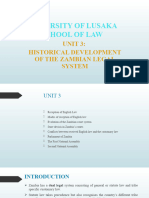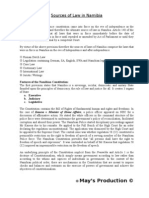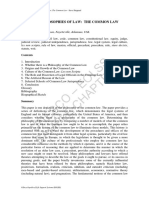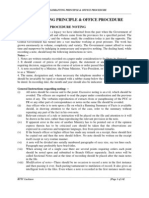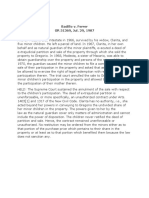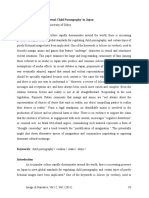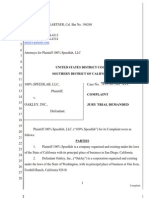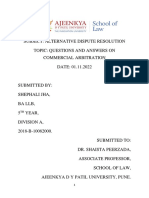Honourable Minister Muntu Phiri,
This opinion aims to critically analyze the possible ramifications of any attempt to undermine
Zambia's Common Law legal system while also clarifying its nature and ongoing relevance. In
addition to being admirable, your dedication to eliminating remnants of colonial heritage is
indicative of a larger national yearning for autonomy and cultural genuineness. It's crucial to
acknowledge, nevertheless, that Zambia's legal system still relies heavily on the Common Law
system, despite its colonial beginnings.
Common law, which was brought to Zambia by British colonial power, is primarily defined by
the judicial precedent, or stare decisis, concept. In order to promote a legal system based on
uniformity, predictability, and equity, this concept requires courts to decide matters in a way that
is consistent with earlier rulings. This approach's usefulness is in its capacity to give the public
and the courts a clear knowledge of how laws are implemented and interpreted, hence boosting
confidence in the legal system.
Zambia has not only kept this system in place since gaining independence, but has actively
expanded it by incorporating Common Law ideas with statutory and customary legal traditions.
This has led to the development of a distinctive and dynamic hybrid legal system that
incorporates both the traditional formal jurisprudential frameworks and the indigenous norms
and values that are relevant to Zambians' everyday lives.
A substantial amount of Zambia's judicial training, legal education, and daily legal practice are
deeply anchored in the customs and practices of the Common Law system. The impact of
Common Law is seen in everything from courtroom procedures to law school courses. A
significant amount of statutory law and even the Zambian Constitution still operate on the
presumption that Common Law principles like judicial precedent and interpretative coherence
would be applied.
There would be immediate and serious repercussions if the Common Law system were
eliminated or eliminated from the legal system. First and foremost, courts would be less able to
render consistent, logical rulings if there were no established legal precedents. Judges would not
have a systematic point of reference for interpreting laws or settling conflicts, which might lead
to inconsistent decisions, a decline in public trust in the judiciary, and a general breakdown of
the integrity of the law.
Secondly, eliminating Common Law would need a comprehensive and unfeasible legislative
reform. Common Law concepts are either explicitly or tacitly assumed in a large portion of
Zambia's statute law. An enormous amount of legal knowledge, coordination, and financial
resources would be needed to rewrite these statutes to remove such references. The procedure
can cause the judicial system to become paralyzed and prevent regular people from accessing
justice.
In addition to the domestic challenges, the abolition of the Common Law system would have far-
reaching implications for Zambia’s international legal standing. One major effect would be the
nation's exclusion from the larger Common Law jurisdiction community, which consists of
�several countries in Africa, the Commonwealth, and other places. Smoother diplomatic ties,
commercial discussions, and cross-border legal collaboration are made possible by these nations'
shared legal standards. Removing Zambia from this legal family would make it more difficult to
negotiate and implement trade agreements, make it more difficult to participate in international
arbitration, and prevent access to a vast and constantly changing body of precedent and legal
literature.
Making a distinction between the Common Law system's colonial roots and its current
manifestation in Zambia is also crucial. Despite the fact that the system was established during
colonial control, Zambian judges, legal experts, and practitioners have since greatly changed it.
These individuals have been instrumental in developing a distinctively Zambian body of
jurisprudence throughout the years, interpreting and implementing Common Law principles in
ways that are consistent with the country's changing sociocultural background, lived experiences,
and beliefs.
Targeted legal reforms would be a more beneficial and successful course of action than
completely abandoning the Common Law. This entails examining and updating out-of-date
colonial-era laws to make sure they still reflect Zambia's needs and goals today; broadening the
acceptance, codification, and incorporation of customary law to better represent the nation's
many cultural traditions; and carrying on with the development of an indigenous body of
jurisprudence that reflects Zambia's democratic ideals and constitutional values.
In conclusion, the complete abolition of the Common Law system will cause far more harm than
benefit, even while the goal to decolonize Zambia's legal system is justifiable and stems from a
larger quest for national identity and autonomy. Although Common Law was developed in a
colonial setting, it has subsequently undergone modifications and adaptations to conform to
Zambia's particular legal, social, and cultural conditions.
The future of Zambia's legal growth rests in substantial and deliberate change, not in the
abandoning of systems that nevertheless provide essential duties. This entails evaluating out-of-
date legislation critically, advocating for the acceptance of indigenous and customary legal
traditions, and bolstering a distinctively Zambian body of jurisprudence that captures the goals
and real-world experiences of its citizens.
The way forward should thus be one of change rather than erasure—creating a legal framework
that respects Zambia's history, advances justice, and guarantees that the law is still applicable,
efficient, and available to all citizens.



























